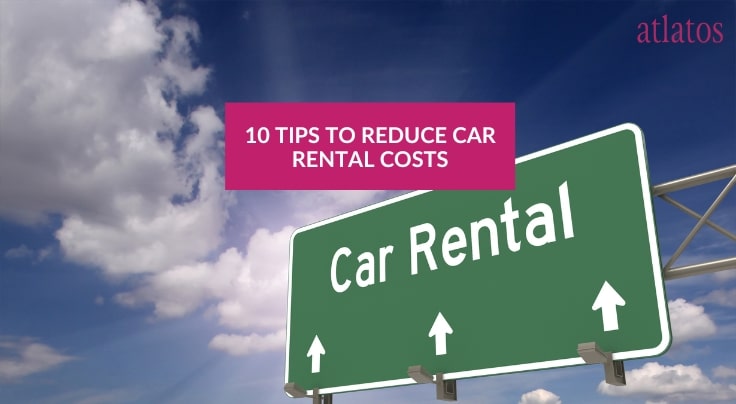10 tips for optimizing car rental costs on business trips with travel management software

The optimization of travel costs plays a central role in modern travel management. Car rental can be a major cost factor, especially on business trips. However, with the right strategy and professional travel management software, considerable savings can be made. Here are ten proven tips on how companies and travelers can efficiently reduce their travel costs through the targeted use of car rental companies and software solutions.
reduce costs
1. renting a car outside airports and train stations
Rental cars that are picked up at airports or train stations are often subject to higher charges. These so-called location surcharges can be avoided by picking up the vehicle at a city station. Good travel management can automatically suggest these options to save additional costs.
2. use long-term rentals
For longer business trips of more than 30 days, many car rental companies offer special rates. These long-term rates are usually cheaper than daily rentals. It is worth looking for such offers via the travel management and taking advantage of company conditions.
3. corporate rates in the travel management system
Many companies have access to special corporate rates with certain car rental providers via their travel management. These corporate rates often offer significant discounts and additional benefits, such as included insurance. Companies should therefore give preference to working with selected partners in order to secure the best conditions.
4. early booking of rental cars
The cost of rental cars often increases as the pick-up date approaches. By booking early via the travel management, better rates can be found. Automated reminders and booking optimizations help to identify the best time to make a reservation.
5. avoid additional costs for unnecessary extras
Navigation systems, additional insurance or other extras can drive up rental car costs. Most company rates already include all the necessary services. Travel management makes it easy to identify and avoid these additional costs.
6. take mileage restrictions into account
Look out for offers without mileage restrictions. Especially for longer business trips, offers with mileage limits can become expensive if the permitted distance is exceeded. Efficient travel management can identify these risks and suggest cost-effective options accordingly.
7. pick up the vehicle yourself
Delivering a rental car to a specific address often incurs additional costs. If the rental station is easily accessible, picking up the vehicle yourself can reduce these unnecessary expenses. Here, too, travel management helps to show the best options.
8. plan rental times cleverly
A rental day usually lasts 24 hours. If you keep the vehicle unnecessarily longer, you will pay for additional days. With the right planning and booking via a travel management, the rental period can be optimally controlled to save costs.
9. check the vehicle on takeover
A quick check of the vehicle when you pick it up can avoid misunderstandings later on. Document any damage with your cell phone. Many travel management now also offer digital documentation solutions that make the rental car process more transparent.
10. return the rental car with a full tank
The “full-to-full” rule, where the vehicle must be returned with a full tank, is particularly cost-effective for business trips. The rental company’s refueling service is often associated with high fees. Good travel management reminds travelers to refuel the vehicle in good time before it is returned.
Conclusion: Efficient car rental booking with travel management software
By using car rental strategies correctly and implementing comprehensive travel management, companies can make significant savings on travel costs. These software solutions not only offer better conditions, but also enable more efficient management of bookings, which ultimately leads to cost-efficient travel management. This makes business trips easier to plan, more cost-effective and less stressful.


